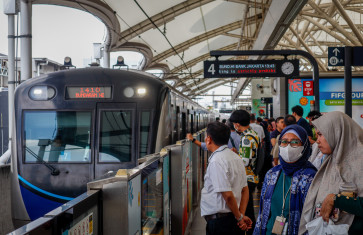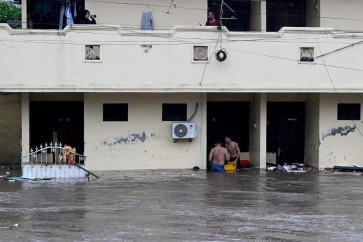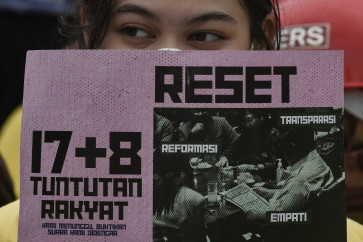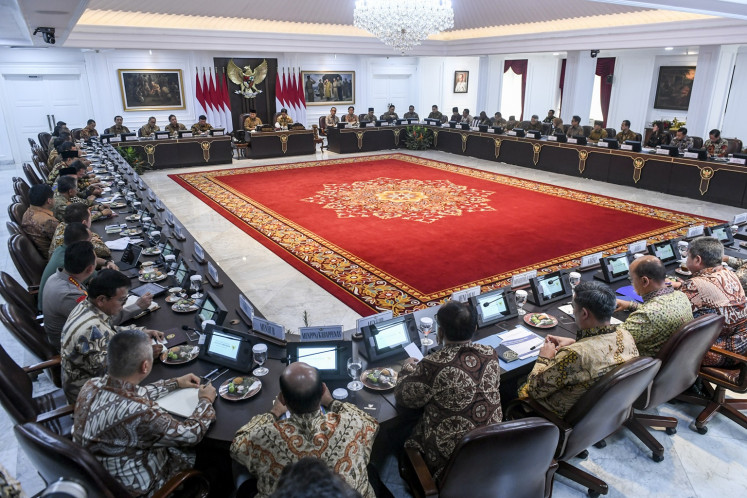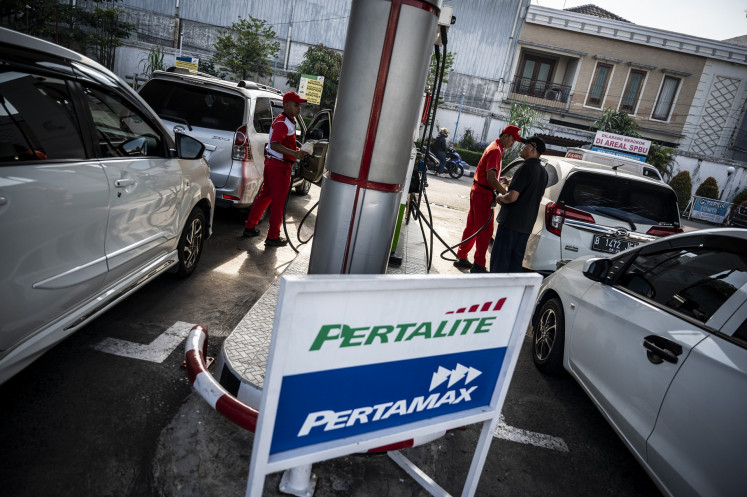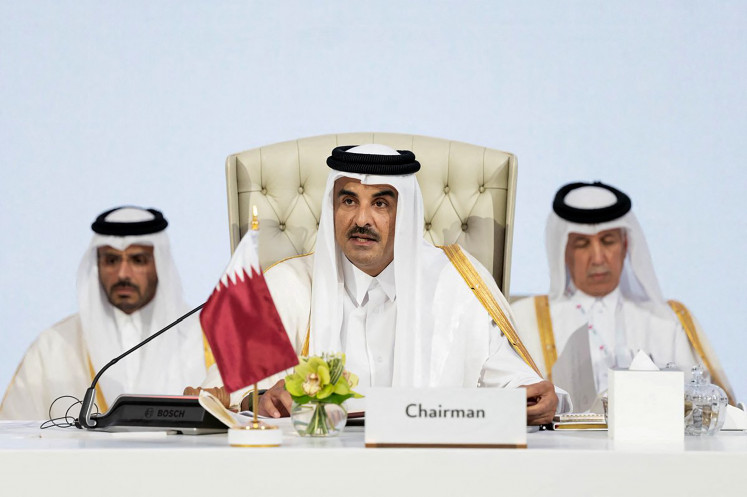Popular Reads
Top Results
Can't find what you're looking for?
View all search resultsPopular Reads
Top Results
Can't find what you're looking for?
View all search resultsHouse approves fuel plan
Smoked out: A student protester runs to escape tear gas fired by police to disburse a demonstration opposing the planned fuel price hike in front of the House of Representatives building in Jakarta on Monday
Change text size
Gift Premium Articles
to Anyone
S
span class="caption">Smoked out: A student protester runs to escape tear gas fired by police to disburse a demonstration opposing the planned fuel price hike in front of the House of Representatives building in Jakarta on Monday. JP/Jerry Adiguna
The House of Representatives endorsed on Monday the revised state budget, giving President Susilo Bambang Yudhoyono's administration the legal authority to raise the price of fuel.
As many had predicted, four political factions in the House, namely the Indonesian Democratic Party of Struggle (PDI-P), the Prosperous Justice Party (PKS), the Great Indonesia Movement (Gerindra) Party and the People's Conscience Party (Hanura), officially rejected the revised budget.
The House made the decision in a voting session that was held after a 10-hour plenary session failed to hammer out differences among the political factions.
In the voting, 338 lawmakers gave their support to the revised state budget as opposed to 181 lawmakers, who rejected the plan. Forty-one lawmakers abstained.
Leading up to the voting, political factions in the House engaged in intensive lobbying for hours.
The four opposing factions rejected the proposal for a revision to the budget, which was formulated on the condition of a fuel-price hike.
Counting heads: Members of the House of Representatives vote to approve the Revised State Budget 2013 bill , which will lead to an increase in subsidized fuel prices in the near future, on Monday night. The House passed the bill with 338 members voting in favor and 181 members voting against. JP/Wendra Ajistyatama
Having previously declared that increasing fuel prices was within the government's authority, Gerindra changed its stance at the very last minute before voting began.
Gerindra lawmaker Fary Djemi Francis said that the government could boost job-creation programs and spend more on infrastructure projects.
Meanwhile, the PDI-P and PKS insisted on tabling their own versions of state budgets, both of which were based on the condition that fuel prices were not raised.
'A viable and healthy state budget should not include the increase of the price of subsidized fuel, which has been rejected by the people,' said Abdul Hakim of the PKS, which officially remains a member of the government's coalition under the Joint Secretariat (Setgab).
To add drama to their move in opposing the government's fuel plan, members of the PKS faction walked out of the plenary hall before the political lobbying started.
The arguments presented by the PDI-P and PKS sparked tension in the plenary session and drew ire from lawmakers who supported the fuel-price hike.
Lawmaker Achsanul Qosasi from the Democratic Party even accused those politicians who opposed the fuel-price increase as the same ones who failed to stand up for the people.

'Seventy percent of the fuel subsidy goes to people who cannot be considered impoverished. This means that those opposing the adjustment in fuel prices support [oil] smugglers and the rich middle class,' Achsanul said.
Other than the ruling Democratic Party, the other factions that supported the fuel-price hike included the Golkar Party, the National Mandate Party (PAN), the United Development Party (PPP) and the National Awakening Party (PKB).
Earlier, the four factions had also rejected the government's plan to distribute temporary direct cash assistance (BLSM), aimed at cushioning low-income people against inflation stemming from the planned fuel-price increase.
Meanwhile, foreign investors have rushed to sell their Indonesian assets on the back of concerns over the government's fiscal management.
The Finance Ministry had forecast that, without any adjustment to existing fuel prices, the budget deficit this year would soar as high as 3.8 percent, well above the permitted limit of 3 percent.
Heavy foreign sales in Indonesia's bond and stock markets, both of which have seen a staggering US$1.9 billion outflow of funds in the past two weeks, have put pressure on the rupiah. The currency breached the 10,000 per US dollar mark last week, before Bank Indonesia (BI) intervened to return the rupiah back to its 9,800 level.
Finance Minister Chatib Basri reiterated that the government would raise the price of subsidized fuel,
no matter what the outcome of the lawmakers' lobbying.
'There will be instability in our economy [if we do not raise fuel prices]: Huge capital outflows, a plunging rupiah and soaring inflation,' the minister told reporters on the sidelines of the lobbying session.
'Increasing the price of subsidized fuel is fully within the government's domain, not the House's [...] And it's a move that we must take,' he emphasized.



